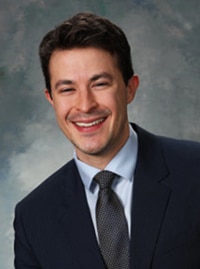 Rep. G. Andrés Romero
Rep. G. Andrés Romero
By ROBERT NOTT
SFNM
A New Mexico lawmaker who works in education is proposing an overhaul to the state’s high school graduation criteria in a bill that would reduce the number of required classes and give students the option of skipping Algebra 2.
Rep. G. Andrés Romero, D-Albuquerque, has introduced House Bill 83, which also would allow students to choose a capstone class — a long-term project exploring an interest, such as a profession or social issue — in lieu of a core subject.
Under the bill, a high school student opting for the capstone would have to work with an educator to ensure the project meets certain state standards.
“We’re trying to set them up for what students are interested in and have educators be there to help students develop their interests or lead them to a new path,” said Romero, a history teacher at Albuquerque Public Schools and chairman of the House Education Committee.
It’s important for students to have a variety of pathways in high school and access to courses that will be most beneficial after graduation, he said, whether they choose college or the workplace.
On the surface, the bill calls for few changes to the main components of graduation mandates. Students would still need four class “units” in English and three in math.
But Romero’s bill would give students more flexibility to choose classes within those categories.
Rather than Algebra 2, for instance, a student could opt for computer science, probability or statistics classes — courses that might prove more useful down the road, Romero said.
“I always thought it was wrong to make Algebra 2 the gatekeeper of all future success,” said Ellen Bernstein, president of the Albuquerque Teachers Federation, which supports the legislation.
Educators and school administrators nationwide have debated in the past few years whether two years of algebra — the standard — are necessary for success in college and the workforce.
Romero said he has found in talks with other teachers and students in his district that Algebra 2 has been a “major stumbling block” to graduation.
He argued other courses, like financial literacy or statistics, are “more applicable to real life. … Students know those are things that are good life skills for them.”
Given many colleges and universities throughout the nation have been undergoing admissions “transformations,” he said, it’s unlikely that bypassing Algebra 2 would hinder a student’s chance to get into college.
Recently, Michigan State University and California State University joined a growing number of schools that have dropped or decreased algebra requirements for enrollment.
Veronica García, superintendent of Santa Fe Public Schools, said she was “not uncomfortable” with the idea of removing the Algebra 2 requirement.
Though, she agreed it might not be necessary for all students.
Parents and academic counselors need to “do a good job of looking at what a student’s aspirations are and make it clear that if they are looking at a four-year university, they may be better served by taking it,” she said.
Regarding the capstone option, García said her district is “playing around” with the concept of creating such a program. She said it can be successful if it is aligned with core standards.
A high school senior could intern at a newspaper and produce enough news clippings to show they “mastered the proficiency needed in that profession,” she said.
Bernstein also said she likes the capstone class option.
“High-schoolers are very sophisticated and deserve to have the right to make some choices in taking the classes that they are most interested in taking,” she said.
Mary Parr-Sanchez, president of the National Education Association of New Mexico, said she supports the bill in large part because of the capstone option.
As a middle school teacher for 25 years, she said, she used to allow students to create a cumulative project to showcase for friends and family members.
“It’s an excellent step for New Mexico to make toward stepping away from a standardized assessment to one that is more tailor-made for students,” she said.
Another change Romero’s bill proposes would make social sciences requirements a little less flexible. The measure says at least one class “unit” out of the three and a half mandated for graduation would have to be in government and civics.
Romero said the provision is an effort to ensure students become more knowledgeable about the policymaking process and how it affects them.
“We think of government, when we teach it, as if it’s off in the distance,” he said. “This will encourage them to get more involved and understand how it impacts them.”
HB 83 also offers a new array of electives for students to fulfill science requirements, including agriculture, culinary arts and wildlife management.
Schools that do not offer those programs would not be forced add them, Romero said. But they would need “an appropriate number of options for students to fulfill their requirements.”
HB 83 also would allow students to count programs such as marching band and ROTC as a physical education credit.
Romero said he expects the House Education Committee to hear the bill sometime in the next two weeks.
Nora Meyers Sackett, a spokeswoman for Gov. Michelle Lujan Grisham, said she wasn’t aware of the bill but said the Governor’s Office will review all legislation as it makes its way through the 60-day session that began Tuesday.

